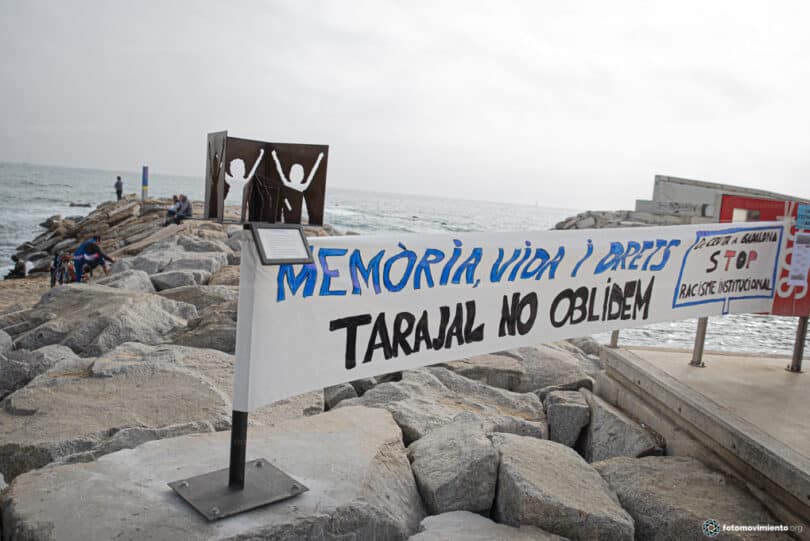by IKER SUAREZ

Over 10,000 people died in transit to Spain in 2024 alone.[1] On June 2022, the border fence of Melilla, one of two Spanish enclaves in Morocco, was witness to a massacre that killed or disappeared over a hundred African migrants.[2] A recent BBC investigation revealed that Greek border guards systematically repeal immigrants already on Greek land, hurling them back into the sea. Meanwhile, Frontex (Europe’s ICE) has become the EU agency with the largest budget and is fast assembling 10,000-man-strong army to counter immigration, with its own ships, aircrafts, drones and weapons. The Standing Corps, as it’s called—the first and only pan-European armed force.
Reports of massacres punctuate the short history of European borders. The repetitive media cycle of death, indignation and forgetting is by now customary. The accumulation of massacres barely even registers among political forces or the broader public. Europe’s “left,” both moderate and “radical,” alternately decries or plays down migrant death, depending on their own position in government.
In between the more mediatized massacres, however, an uninterrupted stream of death is the rule. Mostly unreported, hard to even count. Advocates calculate that at least 60,000 people have been killed at Europe’s borders since 1993; others calculate that over 30,000 have died or gone missing since 2014 alone (excluding the 10,000 of 2024).[3] These are minimum estimates. The reality is bleak—it is time to transcend moral lamentation and understand this situation structurally.
Critical social forces in Europe have called it a “human rights crisis.” Nonprofits highlight the contradictions between “European values” and this ongoing “scandal.” But is it a crisis? Mass slaughter at Europe’s southern borders undoubtedly is—but not in the way painted by liberal-progressive European civil societies. The migrant genocide is not a crisis because it shakes the consciousness or self-perception of Northern publics. Rather, it is at once a structural imperative of the late imperialist arrangement and among the direst expressions of the broader crisis of global capital. This piece attempts to explain how, exactly, this is.
Montly Review Online for more
